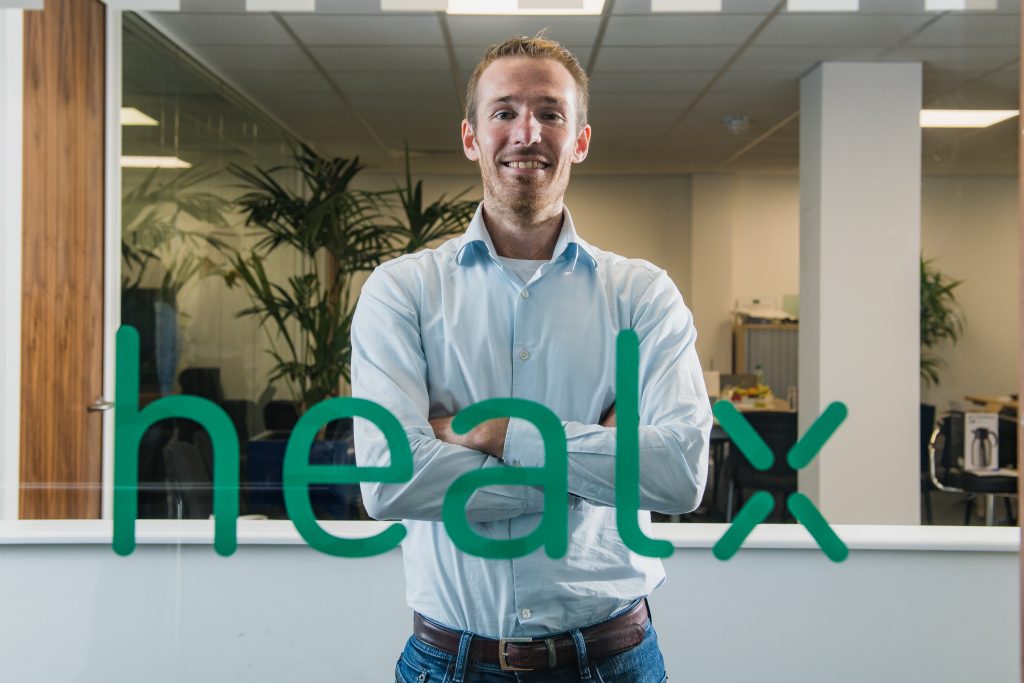Dr Tim Guilliams is the co-founder and CEO of Healx, a company using artificial intelligence (AI) to rewrite the economics of drug discovery for the world’s rarest diseases.
The Cambridge, UK-based company uses algorithms to find links between diseases that already have treatments and those that do not. Healx can speed up the drug discovery purpose because those treatments already have approval from regulators, allowing the company to skip many of the earlier development stages.
Founded by Guilliams and viagra co-inventor Dr David Brown in 2014, Healx has raised $67.9m (£51.9m) in funding. Its most recent capital boost came in a $56m Series B round in 2019.
In the latest Founder in Five Q&A, Guilliams explains why you should pick investors that are “willing to roll up their sleeves”, shares some of the “noisy” problems with scaling and reveals the sector he believes is on the cusp of “tangible innovation”.
1. What was the most important early hire you made?
Tim Guilliams: All of our early hires were technical, in areas like software engineering, machine learning, and informatics. I can think of two or three people in particular, who have been very important to our success and are still with the company today.
All of those early hires were instrumental in building a minimum viable product and they have given us a solid technical foundation, which has had a big influence on how we approach and solve problems today. They also all had a real commitment to our mission, and I think that has been a big part of why those hires were so successful. So now, when we are interviewing, that alignment with our mission is something we continue to place a great deal of emphasis on.
2. What funding advice would you give to a first-time founder?
TG: As a founder, selecting an investor and receiving funding is one of the most important decisions you will make because it’s rarely reversible. You really need to think of this in the same way that you would think about selecting a co-founder or your early hires.
Look for investors that are willing to roll up their sleeves as an operational and strategic partner and someone that truly believes in your culture and values. I would strongly recommend founders do careful due diligence and ask other founders about their experience with different investors. Also, ask potential inventors to introduce you to their portfolio companies – especially those that didn’t work out – so you can understand how they might work with you.
Good days are easy, but finding out how investors behave on the bad days is a very important indicator. As a founder, bad days are inevitable and you really want investors who will stick by and support you when they happen.
3. Excluding your own, what’s a sector that’s ripe for disruption?
TG: Many people have made this point, and I tend to agree that the way we think about agriculture and farming – particularly meat – is going to radically change in the future and possibly quite soon. I think we are already seeing a significant shift in consumer behaviour with more people trying to eat less meat.
It’s certainly something that I am trying to do myself. But that probably only addresses a small percentage of the problem in terms of feeding the planet in the decades to come. We have already seen some amazing scientific advancement in this area (in the field of alternative proteins and sustainable farming practices) and there is a huge opportunity for companies that find a way to bring the technology to market. I’m quite optimistic that we will see some tangible innovation in that area in the coming years.
4. What are the best and worst parts of your job?
TG: The best part is for sure getting to work on something I’m deeply passionate about every day. I’ve always believed in the power of technology to do something good in the world, and the fact that I now get to lead this mission-driven company that is trying to change the lives of rare disease patients is a real privilege.
On the bad side of things, certainly as we’ve scaled the number of emails and Slack messages I’m getting has massively increased. It can be difficult to keep the ‘signal-to-noise’ ratio right and make sure my attention remains on the high-impact and bigger picture priorities as the CEO. Also, as we’ve grown to operate globally, I’m getting more used to early morning and late-night calls with different countries, which unfortunately clashes with precious family time with my wife and young children.
5. What’s the most adventurous thing you’ve ever done?
TG: What a great question! One memory that really sticks with me is when I was an engineering student and I went to live and work in Ecuador for a long summer. I was living in this small town called Cayambe, close to one of the highest volcanoes in the country (around 5,800m) and me and a local friend decided to climb it.
We made sure to follow an ice-climbing route my friend was familiar with, but when we got up there, we got caught in an unexpected snowstorm and ended up being completely lost and stuck up there! It was really scary at the time, but it gave me a new perspective on life when I came down – I was so happy to be alive and also made sure to hire an actual professional ice-climbing guide next time!
Founder in Five – a UKTN Q&A series with the entrepreneurs behind the UK’s innovative startups, scaleups, unicorns and tech companies – is published every Friday.
The post Founder in Five: Q&A with Healx CEO Tim Guilliams appeared first on UKTN | UK Tech News.


